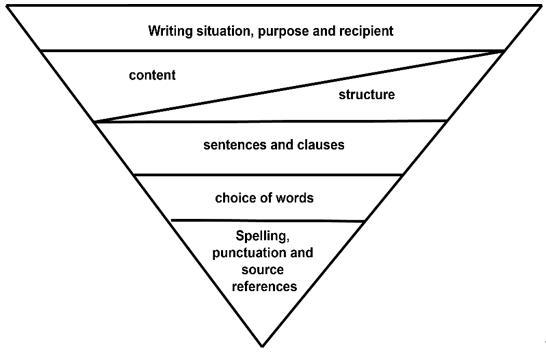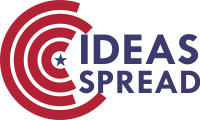Learning the Disciplines Through Linguistic Feedback: Contribution to the Development of a Discipline-Specific, Formative Evaluation of Students’ Assignments
Abstract
Students write to learn. Besides, enculturation to the disciplinary discourse happens during writing. Feedback on the assignments from the students scaffolds students’ writing development and learning paths. However, knowledge about the relationship between language, including argumentation in the discipline, on one hand, and the content of the discipline, on the other, is needed. This article is based on a socio-cultural approach to writing in the disciplines, and theory on feedback, and focuses on the relationship between the meso-level of texts (sentences, clauses, word choice) and the content of the discipline. We discuss how insight into the meso-level of texts may be used to improve and to develop feedback and formative evaluation. Cases from an intervention project in a Danish upper secondary school are included, and indicate that teachers and students assign a lower priority to feedback on the meso-level. This article claims that providing feedback on the meso-level strengthens writing development and students’ learning processes. To illustrate how this may be accomplished two texts are analyzed: one from a history class and one from a biology class.
Downloads
References
Biggs, J., & Collis, K. (1982). Evaluating the quality of learning: the SOLO taxonomy (structure of the observed learning outcome). Academic Press.
Black, P., & Wiliam, D. (1998). Assessment and classroom learning. Assessment in Education, 5(1), 7-74. https://doi.org/10.1080/0969595980050102
Blåsjö, M., & Josephson, O. (2018). Texter och genrenormer. In P. O. Erixon & O. Josephson (Eds.), Kampen om texten. Examsarbetet i lärarutbildningen. (The battle over the text. Exam work in teacher education). Studenterlitteratur.
Bueie, A. A. (2016). Nyttige og mindre nyttige lærerkommentarer-slik elevene ser det. (More and less useful teacher feedback - as the pupils see it). Nordic Journal of Literacy Research, 2, 1-28. https://doi.org/10.17585/njlr.v2.188
Christensen, V. (2014). En generel feedbackmodel i et specifikt fag. In V. Christensen (Ed.), Feedback i danskfaget. (Feedback in the subject Danish). Dafolo.
Christensen, V. (2015). Nettekster fanger og fænger. Multimodale tekster, feedback og tekstkompetence i danskundervisningen i udskolingen. (A generic model for feedback on a specific subject). [Monography, Aalborg Universitetsforlag]. Aalborg.
Christensen, V., & Hobel, P. (2020). Disciplinary Writing Tutors at Work. A study of Feedback Quality in Academic Writing at the BA Level. Journal of Academic Writing, 10(1), 113-127. https://doi.org/10.18552/joaw.v10i1.613
Crossman, J. M., & Kite, S. L. (2012). Facilitating improved writing among students through directed peer review. Active Learning in Higher Education, 13(3), 219-229. https://doi.org/10.1177/1469787412452980
De La Paz, S. (2005). Effects of historical reasoning instruction and writing strategy mastery in culturally and academically diverse middle school classrooms. Journal of Educational Psychology, 97(2), 139. https://doi.org/10.1037/0022-0663.97.2.139
Dysthe, O. (2011). 'What is the Purpose of Feedback when Revision is not Expected?' A Case Study of Feedback Quality and Study Design in a First Year Master's Programme. Journal of Academic Writing, 1(1), 135-142. https://doi.org/10.18552/joaw.v1i1.26
Dysthe, O., & Hertzberg, F. (2009). Den nyttige tekstresponsen-hva sier nyere forskning? In H. Otnes, O. K. Haugaløkken, L. S. Evensen, & F. Hertzberg (Eds.), Tekstvurdering som didaktisk utfordring (Text assessment as a didactical challenge). Universitetsforlaget.
Dysthe, O., Hertzberg, F., & Hoel, T. L. (2000). Skrive for å lære: skriving i høyere utdanning. (Writing to learn: Writing in Higher Education). Abstrakt forlag.
Emig, J. (1977). Writing as a mode of learning. College Composition and Communication, 28(2), 122-128.https://doi.org/10.2307/356095
Engeström, Yrje (2011). From design experiments to formative interventions. Theory & Psychology, 21(5), 598-628. https://doi.org/10.1177/0959354311419252
Føllesdal, D., Walløe, L., & Elster, J. (1990). Argumentasjonsteori, språk og vitenskapsfilosofi (Argumentation theory, language, and philosophy of science (5. ed.). Universitetsforlaget.
Graham, S., Hebert, M., & Harris, K. R. (2015). Formative assessment and writing: A meta-analysis. The Elementary School Journal, 115(4), 523-547.https://doi.org/10.1086/681947
Hattie, J. (2012). Visible learning for teachers: maximizing impact on learning. Routledge. https://doi.org/10.4324/9780203181522
Hattie, J., & Timperley, H. (2007). The power of feedback. Review of Educational Research, 77(1), 81-112. https://doi.org/10.3102/003465430298487
Hillocks, G. (1987). Synthesis of Research on Teaching Writing. Educational Leadership, 44(8).
Igland, M.-A. (2008). Mens teksten blir til: ein kasusstudie av lærarkommentarar til utkast. (As the texts come into being: a case study in teacher feedback to students drafts). Universitetet i Oslo.
Koffman, B. G., Kreutz, K. J., & Trenbath, K. (2017). Integrating Scientific Argumentation to Improve Undergraduate Writing and Learning in a Global Environmental Change Course. Journal of Geoscience Education, 65(3), 231-239.https://doi.org/10.5408/16-232.1
Kristiansen, B. (2017). Om at skrive på universitetet (On writing at university). Syddansk Universitetsforlag.
Krogh, E. (2010a). Videnskabsretorik og skrivedidaktik. Rapport om et forsknings-og udviklingsprojekt med deltagelse af Avedøre Gymnasium, Kongsholm Gymnasium & HF samt Syddansk Universitet. (The rhetoric of science and didactics of writing. Report on a research and development project implemented by Avedøre Upper Secondary School, Kongsholm Upper Secondary School, and the University of Southern Denmark). I: Gymnasiepædagogik (77).
Krogh, E. (2015). Indledning. In E. Krogh, T. S. Christensen, & K. S. Jakobsen (Eds.), Elevskrivere i gymnasiefag. (Student writing in upper secondary school in the disciplines). Syddansk Universitetsforlag.
Krogh, E., & Hobel, P. (2020). Skrivning er tænkningens værktøj. (Writing is the tool of thought). Styrelsen for Undervisning og Kvalitet. Retrieved from https://emu.dk/stx/paedagogik-og-didaktik/skriftlighed/ellen-krogh- og-peter-hobel-skrivning-er-taenkningens
Krogh, E., & Jakobsen, K. S. (2016). Skriverudviklinger i gymnasiet. (Writer development in upper secondary school). Syddansk Universitetsforlag.
Krogh, E., Spanget Christensen, T., & Sonne Jakobsen, K. (2015). Elevskrivere i gymnasiefag. (Student writing in the disciplines in upper secondary school). Syddansk Universitetsforlag.
Kronholm-Cederberg, A. (2009). Skolans responskultur som skriftpraktik: gymnasisters berättelser om lärarens skriftliga respons på uppsatsen. (The feedback culture of the school as writing practice: Narratives of upper-secondary-school students about teachers’ written feedback to assignments Åbo Akademis Förlag.
Lachner, A., Backfisch, I., & Nückles, M. (2018). Does the accuracy matter? Accurate concept map feedback helps students improve the cohesion of their explanations. Educational Technology Research and Development, 66(5), 1051-1067. https://doi.org/10.1007/s11423-018-9571-4
Morawski, M., & Budke, A. (2019). How Digital and Oral Peer Feedback Improves High School Students' Written Argumentation-A Case Study Exploring the Effectiveness of Peer Feedback in Geography. Education Sciences, 9(3), 178.https://doi.org/10.3390/educsci9030178
Murtagh, L. (2014). The motivational paradox of feedback: Teacher and student perceptions. Curriculum Journal, 25(4), 516-541. https://doi.org/10.1080/09585176.2014.944197
Parr, J. M., & Timperley, H. S. (2010). Feedback to writing, assessment for teaching and learning and student progress. Assessing Writing, 15(2), 68-8. https://doi.org/10.1016/j.asw.2010.05.004
Piekut, A., & Hobel, P. (2016). Dobbelt integration af skrivning på VUC: Kollaborativ skrivning og peer-respons i klasserummet. In Beck, S. (ed.). Forskning i og med praksis på VUC: Nye veje for tænkning, tale, skrift og handling. (Research in and with practice at adult education centers: New paths for thinking, speech, writing, and action). (pp. 213-316). Unge Pædagoger.
Prior, P., & Bilbro, R. (2012). Academic enculturation: Developing literate practices and disciplinary identities. In M. Castelló & C. Donahue (Eds.), University writing. Selves and texts in academic societies (pp. 19-32). Emerald Group Pub. Ltd. https://doi.org/10.1163/9781780523873_003
Schmidt-McCormack, J. A., Judge, J. A., Spahr, K., Yang, E., Pugh, R., Karlin, A., Sattar, A., Thompson, B. C., Gere, A. R., & Shultz, G. V. (2019). Analysis of the role of a writing-to-learn assignment in student understanding of organic acid-base concepts. Chemistry Education Research and Practice, 20(2), 383-398. https://doi.org/10.1039/C8RP00260F
Shanahan, T., & Shanahan, C. (2012). What is disciplinary literacy and why does it matter? Topics in language Disorders, 32(1), 7-18. https://doi.org/10.1097/TLD.0b013e318244557a
Shute, V. J. (2008). Focus on formative feedback. Review of Educational Research, 78(1), 153-189. https://doi.org/10.3102/0034654307313795
Smedegaard, A. (2016). Genrer som rammer: et genreanalytisk studie af institutionelle skrive-og eksamenspraksisser i det almene gymnasiums danskfag med afsæt i en diskussion af pragmatisk genreteori. Ph.d.-afhandling. Institut for Nordiske Studier og Sprogvidenskab. (Genres as framesworks: an analytical genre/a genre analysis study of institutional writing and exam practices in the subject Danish in the Higher General Examination Programme (stx) based on a discussion of pragmatic genre theory). Københavns Universitet. Retrieved from http://static-curis.ku.dk/portal/files/167924545/Ph.d._afhandling_2016_Smedegaard.pdf
Smirnova, N. V. (2015). Writing-to-learn instruction in L1 and L2 as a platform for historical reasoning. Journal of Writing Research, 7(1). https://doi.org/10.17239/jowr-2015.07.01.04
Street, B. (1997). The implications of the 'New Literacy Studies' for literacy education. English in Education, 31(3), 45-59. https://doi.org/10.1111/j.1754-8845.1997.tb00133.x
Timperley, H. S., & Parr, J. M. (2009). What is this lesson about? Instructional processes and student understandings in writing classrooms. The Curriculum Journal, 20(1), 43-60. https://doi.org/10.1080/09585170902763999
Toulmin, S. (2003). The Uses of argument (2nd ed ed.). Cambridge University Press. https://doi.org/10.1017/CBO9780511840005
Underwood, J. S., & Tregidgo, A. P. (2006). Improving student writing through effective feedback: Best practices and recommendations. Journal of Teaching Writing, 22(2), 73-98.
Van Drie, J., Braaksma, M., & van Boxtel, C. (2015). Writing in History: Effects of writing instruction on historical reasoning and text quality. Journal of Writing Research, 7(1). https://doi.org/10.17239/jowr-2015.07.01.06
Vardi, I. (2008). The Relationship between Feedback and Change in Tertiary Student Writing in the Disciplines. International Journal of Teaching and Learning in Higher Education, 20(3), 350-361.
Vygotsky, L. S. (1962). Thought and language (Thinking and speaking). The M.I.T. Press. https://doi.org/10.1037/11193-000
Wellington, J., & Osborne, J. (2001). Language and literacy in science education. McGraw-Hill Education (UK).
Wingate, U. (2010). The impact of formative feedback on the development of academic writing. Assessment & Evaluation in Higher Education, 35(5), 519-533. https://doi.org/10.1080/02602930903512909


This work is licensed under a Creative Commons Attribution 4.0 International License.
Copyright for this article is retained by the author(s), with first publication rights granted to the journal.
This is an open-access article distributed under the terms and conditions of the Creative Commons Attribution license (http://creativecommons.org/licenses/by/4.0/).









1.png)









1.png)











